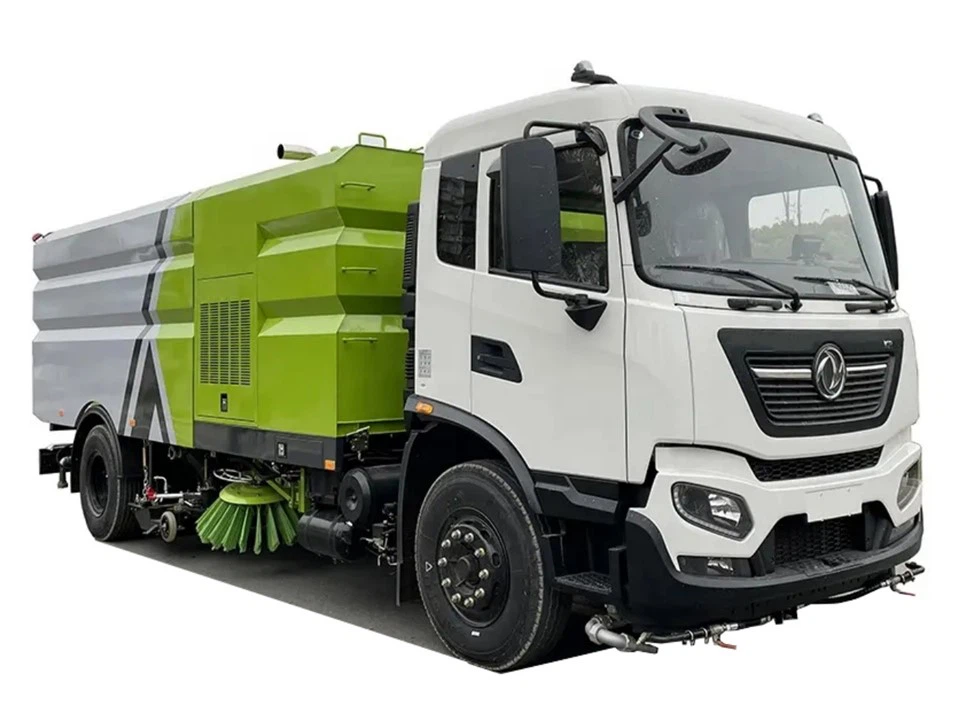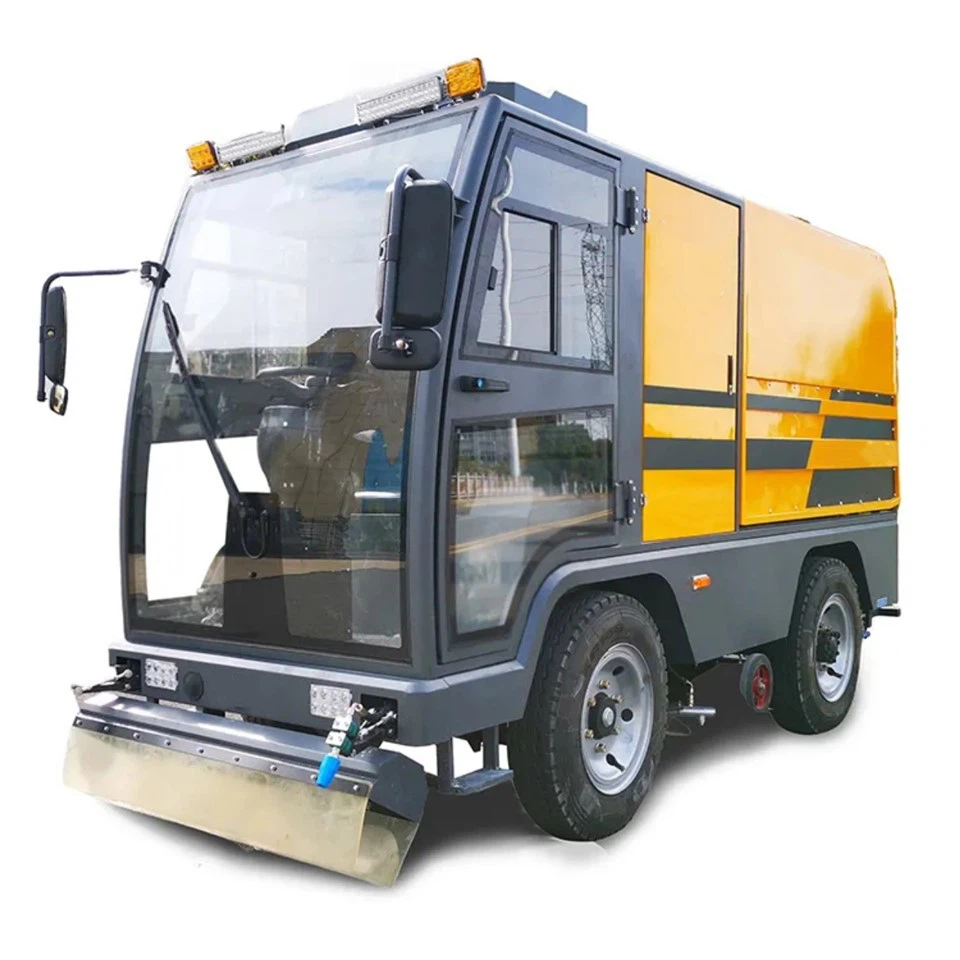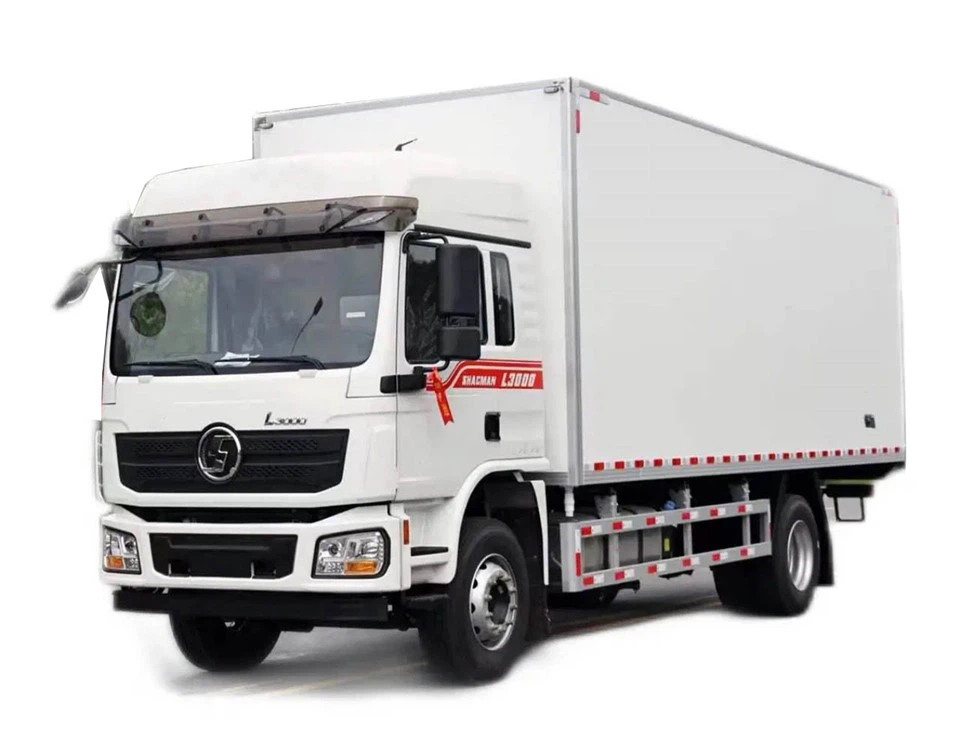All About Combo Trucks: A Comprehensive Guide

Combo trucks are essential vehicles in various industries, combining several functionalities into one powerful machine. This guide will explore what combo trucks are, their types, uses, and much more. Whether you’re a fleet manager, a truck enthusiast, or someone looking to understand more about commercial vehicles, this article will provide all the information you need.
What is a Combo Truck?
A combo truck, also known as a combination vehicle or truck trailer, typically refers to a configuration that combines a towing vehicle and its cargo trailer. This arrangement allows for greater versatility compared to single unit trucks, making them a popular choice for transporting goods over long distances.
Key Features of Combo Trucks
- Versatility: Combo trucks can transport various types of products, including hazardous materials, construction waste, and bulk items.
- Fuel Efficiency: Many modern combo trucks are designed for high fuel efficiency, allowing for reduced operational costs.
- Towing Capacity: These trucks can often tow substantial loads, making them suitable for heavy-duty transport.
- Advanced Technology: Many combo trucks are equipped with the latest technology for better safety and driver convenience.
Types of Combo Trucks
1. Flatbed Combo Trucks
Flatbed combo trucks have a flat deck without sides or a roof, allowing for easy loading and unloading of various materials. They’re popular in construction and logistics.
Pros:
- Easy to load oversized items
- Flexible for different types of cargo
Cons:
- Less protection against weather elements
- Risks of cargo shifting during transport
2. Box Combo Trucks
Box combo trucks come with an enclosed cargo area, providing better protection for goods. They are widely used in deliveries and logistics.
Pros:

- Secured cargo area
- Protection from weather conditions
Cons:
- Limited height for cargo
- Higher operational costs
3. Refrigerated Combo Trucks
Designed for transporting perishable goods, refrigerated combo trucks are equipped with cooling units. They are crucial for food distribution.
Pros:
- Maintain optimal temperatures for perishable goods
- Extend shelf life of products
Cons:
- Higher initial investment
- Increased maintenance requirements
4. Dump Combo Trucks
Dump combo trucks have a hinged bed that can be lifted to unload materials. They are commonly used in construction and mining.
Pros:
- Efficient unloading of bulk materials
- Time-saving during construction projects
Cons:
- Limited versatility for other types of cargo
- Higher maintenance costs due to heavy usage
The Importance of Combo Trucks in Various Industries
1. Construction Industry
Combo trucks play a critical role in the construction sector by transporting materials such as gravel, cement, and heavy machinery. Their ability to carry substantial loads and ease of unloading make them invaluable equipment on job sites.
2. Food Distribution
In food distribution, refrigerated combo trucks ensure that perishable items reach their destination safely and in good condition. These trucks are crucial for maintaining the food supply chain.
3. Waste Management
Combo trucks are essential in waste management, particularly dump combo trucks. They can efficiently transport construction waste, trash, and recyclables to appropriate facilities for disposal or recycling.
4. Logistics and Delivery
Box combo trucks are widely used in logistics to deliver goods efficiently. Their enclosed space protects the cargo from the elements, making them ideal for long-distance transport.
Buying a Combo Truck: Factors to Consider
1. Load Capacity
Determine the maximum load capacity you require based on the types of cargo you’ll be transporting. This will help you make a well-informed decision about the truck size and type.
2. Type of Cargo
Consider the nature of the products you’ll be transporting. If your focus is on heavy materials, a dump truck may be ideal. For perishable goods, a refrigerated option is essential.
3. Fuel Efficiency
Modern combo trucks vary significantly in terms of fuel consumption. Investing in a fuel-efficient model can lead to significant savings over time.
4. Maintenance Costs
Understanding potential maintenance costs is crucial. Some models may have high upfront costs but lower long-term maintenance needs, while others may be the opposite.
Operating a Combo Truck Safely
1. Regular Inspections
Conduct frequent inspections of your truck’s brakes, lights, tires, and load securing systems to ensure safe operation.
2. Load Distribution
Ensure that the load is evenly distributed to prevent instability while driving. Uneven loads can lead to accidents.
3. Proper Training for Drivers
Providing your drivers with adequate training is essential. They should understand how to operate the truck safely and handle various cargo types.
Examples of Popular Combo Truck Models
| Model | Type | Load Capacity (lbs) | Fuel Efficiency (MPG) |
|---|---|---|---|
| Freightliner Cascadia | Flatbed | 80,000 | 6-8 |
| Ford F-750 | Box Truck | 26,000 | 8-10 |
| International MV Series | Refrigerated | 33,000 | 7-9 |
| Kenworth T880 | Dump Truck | 66,000 | 6-7 |
Combo Truck Maintenance Tips
1. Scheduled Maintenance
Create a maintenance schedule that includes required services such as oil changes, brake inspections, and tire rotations. Following this schedule will help prevent major issues down the road.

2. Clean the Truck Regularly

Regular cleaning helps maintain your truck’s appearance and reduces the chance of rust or other damage to the exterior.
3. Monitor Fluid Levels
Regularly check and maintain fluid levels in the engine, brakes, and transmission to ensure smooth operations.
FAQ Section
1. What is the average lifespan of a combo truck?
The average lifespan of a combo truck can vary, but it typically ranges from 10 to 15 years with proper maintenance.
2. Are combo trucks suitable for personal use?
While combo trucks are primarily designed for commercial use, they can be used for personal transport, especially if you require a vehicle for towing or transporting large items.
3. How do I finance a combo truck?
You can finance a combo truck through loans from banks, credit unions, or specialized lenders that focus on commercial vehicle financing.
4. Can I customize my combo truck?
Yes, many combo trucks can be customized based on the specific needs of your business, including different types of trailers or additional storage options.
5. What is the best way to find the right combo truck for my needs?
Assess your cargo types, load requirements, and budget. Research different models and consult with dealers to find the best option for your needs.
6. Do I need special licensing to operate a combo truck?
Yes, operating a combo truck often requires a commercial driver’s license (CDL), depending on the weight and specific regulations in your area.
